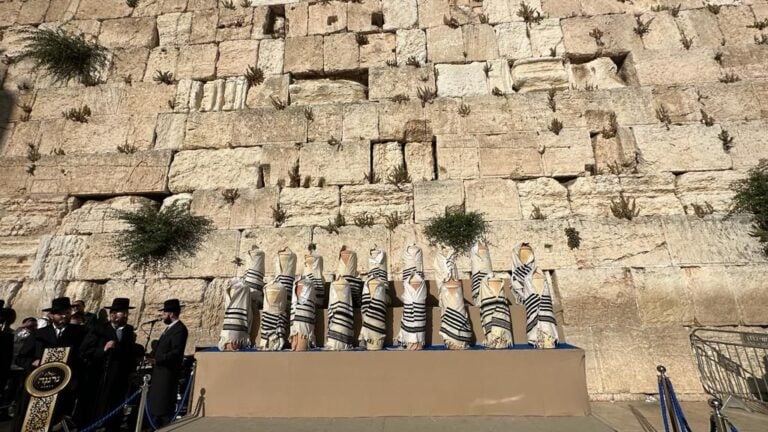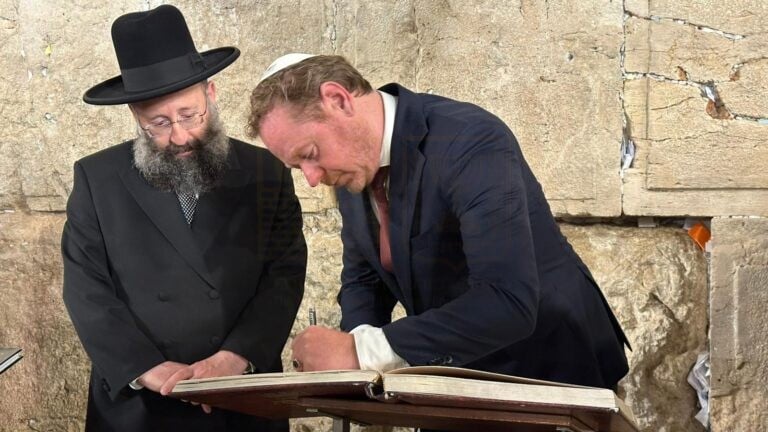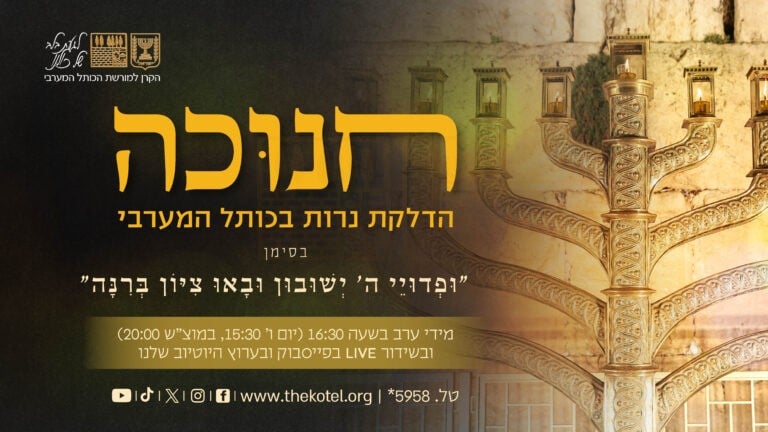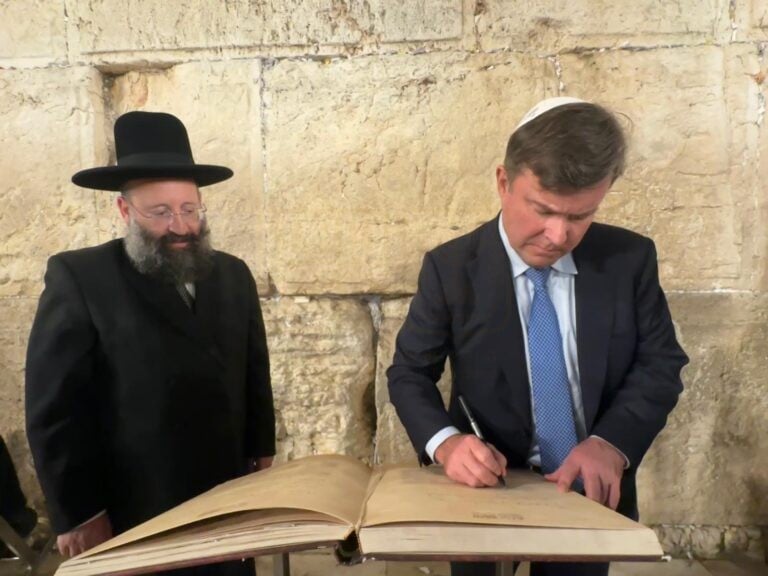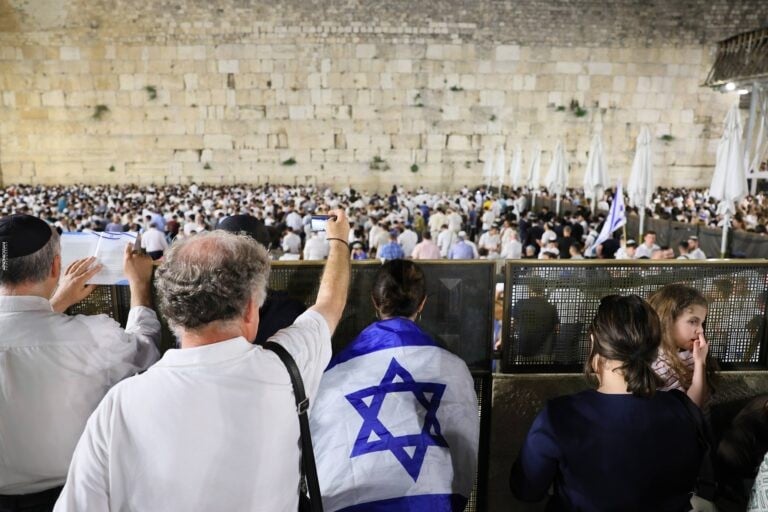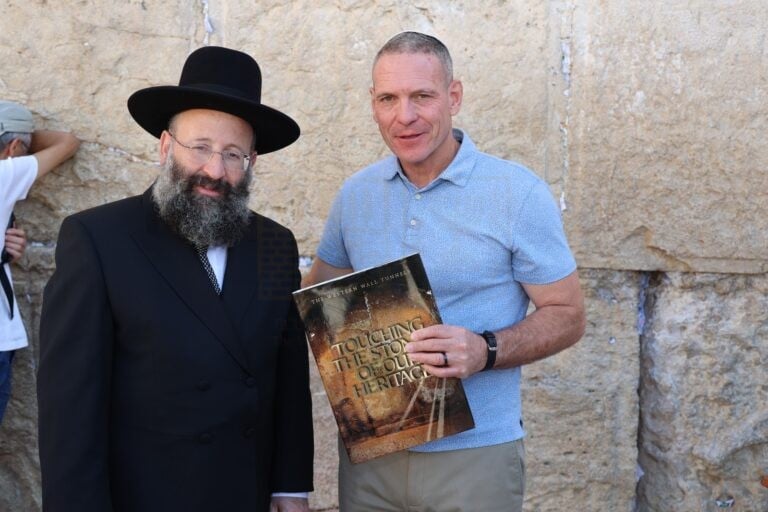|
Getting your Trinity Audio player ready...
|
Parashat Shelach 5783
Parashat Shelah
Rabbi Shmuel Rabinowitz, Rabbi of the Western Wall and Holy Sites
In Parashat Shelach, after the story of the spies who toured the Land of Israel and judged it negatively, so much so that the nation preferred to return to Egypt rather than continue on their journey towards the Promised Land, we read a halacha, a Jewish law, that relates to a unique case of the collective sin of idolatry on the part of the people, following an erroneous instruction of the halachic rulings of the Sanhedrin. In this case, a special sacrifice must be brought to the Temple to atone for the public sin. But the individuals who sinned as a result of the erroneous instruction are not required to bring a personal sacrifice to atone for their actions. This is how the case is described in the Torah:
And if you should err and not fulfill all these commandments, which the Lord spoke to Moses. All that the Lord commanded you through Moses, from the day on which the Lord commanded and from then on, for all generations. If because of the eyes of the congregation it was committed inadvertently…
(Numbers 15, 22-24)
The commentators, based on midrash of Chazal, interpreted the phrase “and not fulfill all these commandments” as a sin of idolatry, since it is difficult to imagine a case in which the entire nation did not perform a single mitzvah. On the other hand, the sin of idolatry is considered heresy of all commandments, since idolatry negates the basis of belief in the Torah and observance of the commandments. In this case, there is an obligation to bring a special sacrifice to atone for the sin.
If you have read the verses quoted above carefully, you have probably noticed the unique expression “the eyes of the congregation.” This refers to arbiters of Jewish law, poskim, members of the Sanhedrin who were active in the distant past, until about 1700 years ago. What is the meaning of the name “eyes of the congregation”? Rashi interpreted this to refer to “the elders who enlighten the people,” and other commentators wrote similarly. The sages of the Torah do not serve in the practical role of ruling halacha, but function as leaders of the people, illuminating before the people the proper path. This epithet expresses an attitude of deep appreciation towards the sages of the Torah and the arbiters of Jewish law who are likened to the eyes that guide a person where to turn.
But surprisingly, this unique designation was actually used in reference to the law dealing with an unfortunate case in which the sages of the Torah gave an erroneous instruction that caused many people to commit such a grave sin as idolatry. Is this the place to point to them as “the eyes of the congregation”? For this purpose, we will examine the halacha taught by our sages in connection with this law.
The Babylonian Talmud discusses this law and writes that it does not apply in every case. The case in which a person obeyed an erroneous instruction, and the responsibility lies with the adjudicator and not the person who acted according to the ruling, is precisely when the adjudicator did not completely err and permitted idolatry, but only when the adjudicator permitted a certain act with the mistaken understanding that it was a permissible act. If the members of the Sanhedrin instructed that it is permissible to worship idolatry across the board, one could not rely on their instruction. Each person is required to consider for himself whether such an absurd instruction is possible, and if he decides to obey the erroneous ruling, the responsibility lies with him (Babylonian Talmud, Tractate Horyot, 3).
In other words, a person is called upon to obey the sages of the Torah out of a deep appreciation for their national role as “the eyes of the congregation,” and at the same time not lose his personal judgment but to examine whether the instruction they gave meets the requirements of Torah/moral reasonableness. A wrong ruling is human, but a blatantly wrong ruling should set off a red light for every person.
Unfortunately, we often hear about various “spiritual” teachers who trap men and women in their net and demand full obedience from them even when the instruction given crosses the line between what is permissible and what is forbidden and what is appropriate and obscene. Such cases cause confusion – should we obey or exercise discretion? Doesn’t exercising independent judgment violate the teacher’s dignity?
The Torah’s answer seeks to strike a balance between a deep appreciation for the sages of the Torah and maintaining independent judgment. Sages are capable of making mistakes—and that is what this parasha is about. This fact does not diminish the value of the wise who are, after all, human beings. We must appreciate the wise and see them as “the eyes of the congregation.” And yet, we must not lose independent judgment or our personal moral compass.
